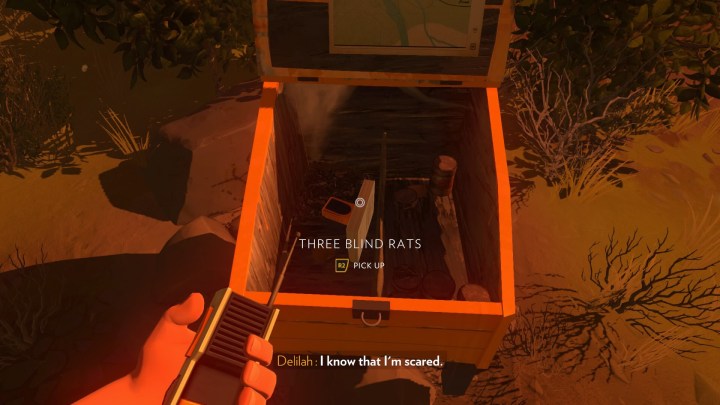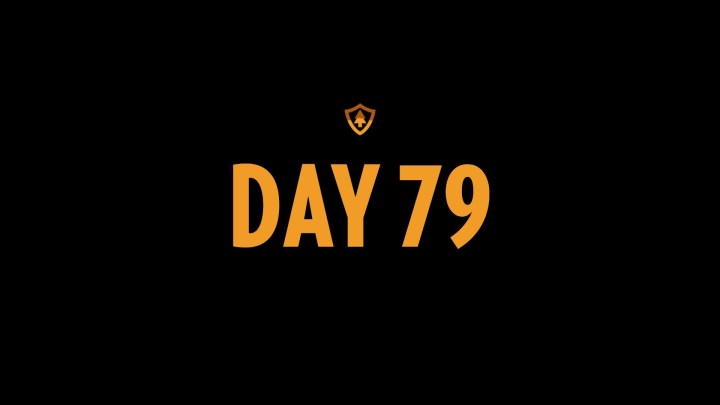
Firewatch is about a man named Henry who takes on a job as a fire watchman in the summer of 1989. He enters into the Wyoming wilderness carrying the burden of a situation that spiraled out of control. The game begins with a series of narrative text options that cue players in to Henry’s relationship with Julia, a professor he met during a night out drinking. Their relationship soon becomes a strained romance; Julia wants to have kids but Henry (depending on your answers) is hesitant. Both have stubborn personality traits and Henry is selfish to the point of being a jerk. Julia’s mental health begins to diminish over time and, though the two of you adopt a dog, the children never come.
Julia’s academic career comes to an end with her developing dementia and (depending on the player’s choices through Henry) her family comes to take her back to Australia where they will care for her. Henry is left alone and makes the decision to accept an unusual yet adventurous job for the summer.

Soon after his arrival in the dry Wyoming wilderness, Henry begins exchanging banter with his boss, Delilah, over walkie-talkie. The two quickly become friends as they bicker back and forth about the job, their personal lives, and the odd happenings in the forest. Beyond these introductory details, I won’t say anything more about the game’s plot. So much of Firewatch‘s finesse comes from the relationship between Delilah and Henry that it is easily spoiled, and this is a game that should be experienced like a good book.
Firewatch‘s gameplay consists of exploration, dialogue options, and the locating of various items. The carefully detailed world, Henry, and Delilah are the game’s everything. Remove one of these elements and the game would fall flat into a pile of unmemorable game titles. Firewatch will undoubtedly be called a walking sim by some, but the game’s plot immersed me till the bitter end. It plays out like a skillfully written novella in its finer moments and presents the kind of story I would gladly sit down and read. 
Without revealing too much, my time with Firewatch was well spent. The game can be played through in a few hours, but I have already started my second play through and will probably revisit Henry and Delilah several times over the years. I want to experience all the nuances of Delilah and Henry’s conversations and developing relationship. They were created with an impressive level of depth–a level that such narrative-heavy games require to be successful.
Many have complained about the game saying it’s too short or that the narrative is as whole as a slice of Swiss. Perhaps I was easily impressed by the character development because many games fall short in that regard. How many female video game characters have been crafted as skillfully as Delilah and even Julia? And how many relationships between male and female characters in video games are based on anything more than sex? The developer’s handling of these dynamics alone is worth the time I spent getting to know Henry and Delilah. Hopefully more in the industry will follow Firewatch‘s example and seek similar depths of character.
Most of the negative comments and forum posts I read talked about how the ending fell flat. These players were expecting to solve a mystery, but what many seem to have missed is that Firewatch is primarily concerned with an adult male who has acted selfishly, who has skirted responsibility by running away, and who continues to make poor decisions. It tells a mature story for mature players. Firewatch did not always leave me feeling happy or content with my choices, but it is reflective of life in this way. This isn’t to say that the game only offers a depressing experience. Players should take comfort in knowing that Henry, Delilah, and Julia are fractured in very basic and relatable human ways as opposed to the macho-protagonists that inundate the vast majority of video games.



